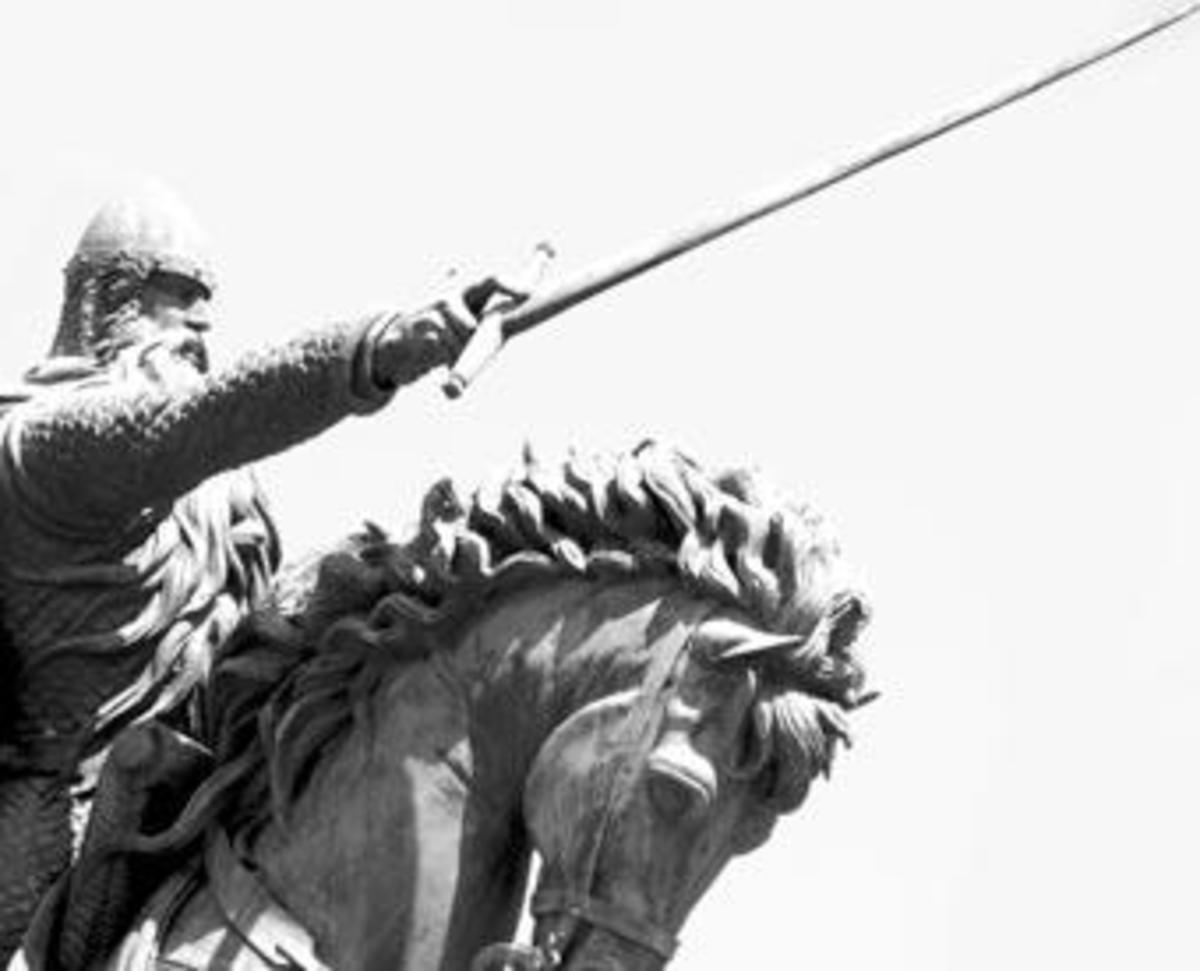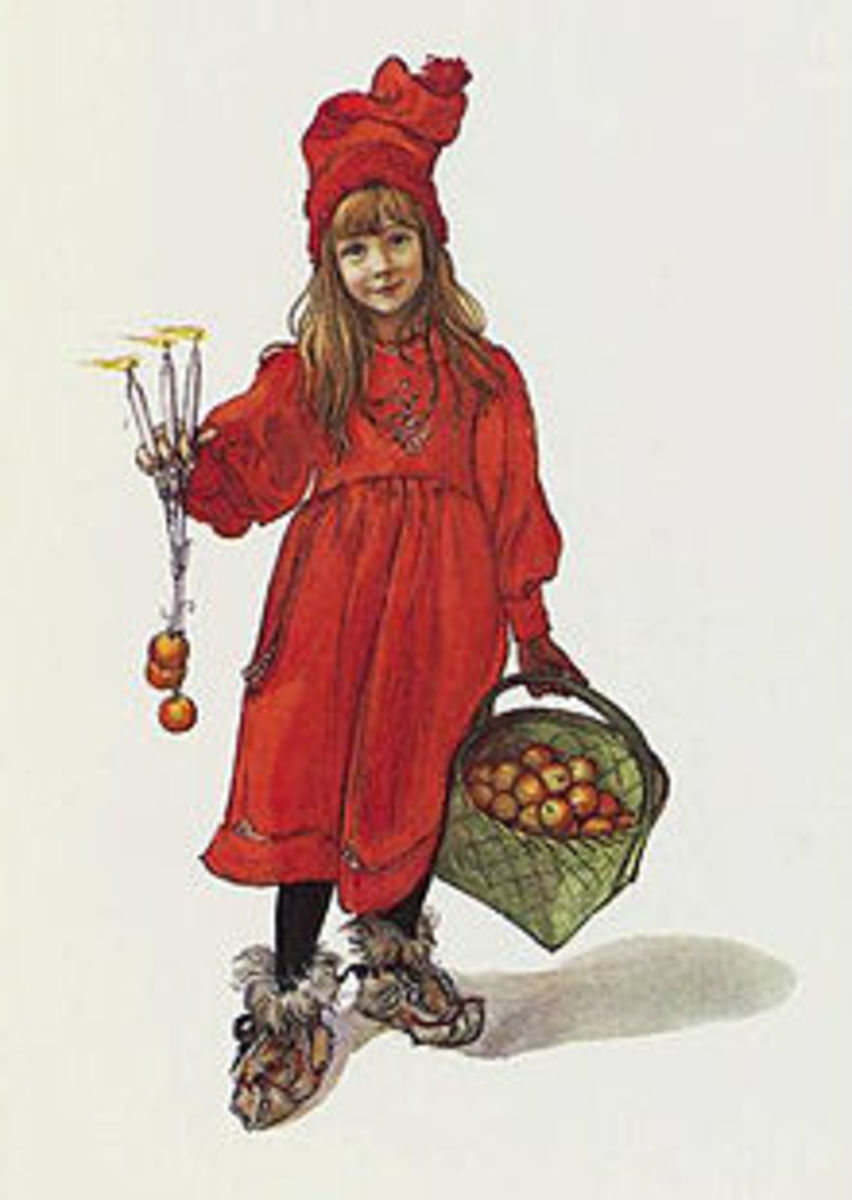Reflections on Three Poems by Gerard Manley Hopkins
Gerard Manley Hopkins, SJ

"The Windhover"
One of Hopkins' most famous poems, "The Windhover," is also his most misunderstood. The essential problem is that readers and critics insist on identifying the kestrel of the title with Christ as Lord--an easy mistake to make, considering that is to whom Hopkins, as a priest, dedicated the sonnet. However, this is not Hopkins' purpose at all. Sighting the majestic, soaring flight of the "dapple-dawn-drawn Falcon," he expresses awe at the creature itself, fashioned by the hand of the Creator, the pre-incarnate Christ.
Hopkins maintains these themes of creation and beginnings throughout the sonnet via repeated allusions to dawn and light, which in turn convey the idea of the heavenly realm--as does the ascending flight of the bird itself. The falcon's flight into the buffeting wind can be likened to the Christian's meeting trials and setbacks in life through faith.
In the final sestet, Hopkins uses earth images to complete the circle between heaven and earth that began when the bird rose. (Man returning to the dust from which he was framed?) The descent to earth is also suggested by the word "buckle"--the falcon's "stoop" (or descent) after his prey. Yet, to Hopkins the very soil itself is a lovely part of the Creation, even when rudely disturbed by instruments in the hands of men ("shéer plód makes plough down sillion"). Sillion, fresh soil upturned by a plow, unfolds all the more beautiful.
"Gold-vermillion" again suggests the dawn--or at least the sun. And there is the double meaning in that vermillion can suggest the wounds of Christ (the sun/Son), whose flesh was rent ("gash"ed, like the earth) and who was given "gall" to drink.
"The Leaden Echo and the Golden Echo"
Hopkins' two-part choral song contrasts the attitude of despair and pessimism--fatalism, even--with the Christian attitude of faith. The leaden echo section emphasizes age, effeteness, death, and doom, while the golden echo section puts an end to the despair of the preceding section. (As in "The Windhover," Hopkins uses in the "golden" section the idea of light/Light of the world and of the sun/Son.) The despair is ended both literally and figuratively. It ends literally in that the repetitive "despair" is told to "spare!" It ends figuratively in that by accepting Christ and living in Him puts an end to despair, because the Christian's vision is one of things above: "Yonder, yes" yonder, yonder, Yonder.
The beauty and youth despaired of in the leaden echo are "restored" in the golden echo: "back to God." It is through God (Christ) that Hopkins believed one achieves supreme and complete victory over the fleeting "things of this world": sic transit gloria mundi.
"Thou art indeed just, Lord, if I contend"
I find this sonnet to be one of Hopkins' most clear, most traditional--and yet, most moving--poems. The construction is after the Petrarchian form. The volta is accomplished rather curiously: by an end of the despairing (complaining, almost) language and a turn to a wistful eulogy of "life" without. It is this life from which the speaker feels divorced, being both isolated from it and denied the generativity shared by all life in Nature--even, it would seem, his literary work is thwarted.
The poet's last appeal is apt: for the "lord of life" to "send [his] roots rain"; i.e., for Christ to nourish him in His word. Such nourishment leads not only necessarily to the "newness of life" promised in Christ in Romans 6:4 but also the restoration of creativity to the poet by the Being WHO IS the Creator (John 8:58)--the pre-incarnate Christ.
Christ, however, is not only Creator--He is man's friend (John 15:13-14) and also His judge (2 Co. 5:10). As a Jesuit, Hopkins would be intimately acquainted with these concepts. And it is in this light that the speaker (who we may take to be the persona of Hopkins himself) is appealing to Christ. His Christian despair is natural and echoes that of all righteous men: "Why do sinners’ ways prosper?" David, Job, and Jeremiah, all recorded the same lament.
The speaker/Hopkins' final appeal is recognition of Christ's creative power, His ability to aid, and the surety that He will aid because He is master and friend--and not just in an overall, generic sense. Hopkins is testifying that Christ is every Christian's own personal master and friend, and is truly so to him (he uses the possessive "mine"). He believes, too, that Christ "will not repent" (possibly alluding to 1 Sam 15:29) from that which He has promised to do for His faithful, of which the speaker is one.
© 2018 J S Penna



